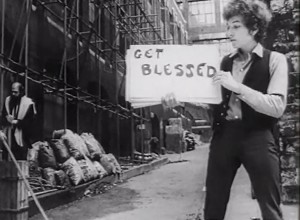 Professor Kathryn Lofton of Yale University will deliver the keynote address for the sixth annual meeting of the Society for U. S. Intellectual History on Friday night, Oct. 10th, at 7:00pm. Lofton is a historian of religion with a particular focus on the cultural and intellectual history of the United States. Her archival expertise is in the post-Civil War era, but her research draws upon the histories and anthropology of religions in the U.S. from pre-contact to the present in order to elucidate the meanings of and relationships between religion, modernity, and the secular. You can learn more about her work here. You may also want to read the interview Cara Burnidge did with Lofton in January of this year, as well as the lively discussion that ensued.
Professor Kathryn Lofton of Yale University will deliver the keynote address for the sixth annual meeting of the Society for U. S. Intellectual History on Friday night, Oct. 10th, at 7:00pm. Lofton is a historian of religion with a particular focus on the cultural and intellectual history of the United States. Her archival expertise is in the post-Civil War era, but her research draws upon the histories and anthropology of religions in the U.S. from pre-contact to the present in order to elucidate the meanings of and relationships between religion, modernity, and the secular. You can learn more about her work here. You may also want to read the interview Cara Burnidge did with Lofton in January of this year, as well as the lively discussion that ensued.
In her address, Lofton will be using Bob Dylan as a way to explore the meaning and boundaries of religious commitment. Here is a sampling:
How do you know if someone is really religious? To answer requires an evidence pool we are rightfully wary to create, one that might tally daily practices and adjudicate doctrinal commitment. In casual conversation, a name is introduced, a someone replies: “oh, they are really religious,” and immediately an image of piety enters the head of the listener, one which suggests veils and temperance and dismissals of decadence. But it is also the case that our replies to this inquiry requires that we debate the relative reality of someone’s religion: “Do you think they’re really religious, or is it all a show?” This is the question on which this talk focuses, namely what can historians claim about the nature of religious commitment, given the variety of evidence available to us as well as our theoretical suppositions about the nature of belief, the epistemology of practice, and tactical value of the concept of religion in our thinking. No historical subject is perhaps more abundant in his documentary record while also being evasive on the categorical point than folk icon and rock gypsy Bob Dylan, whose elusive life and religious times will form the argumentative exhibit for this analysis.

0